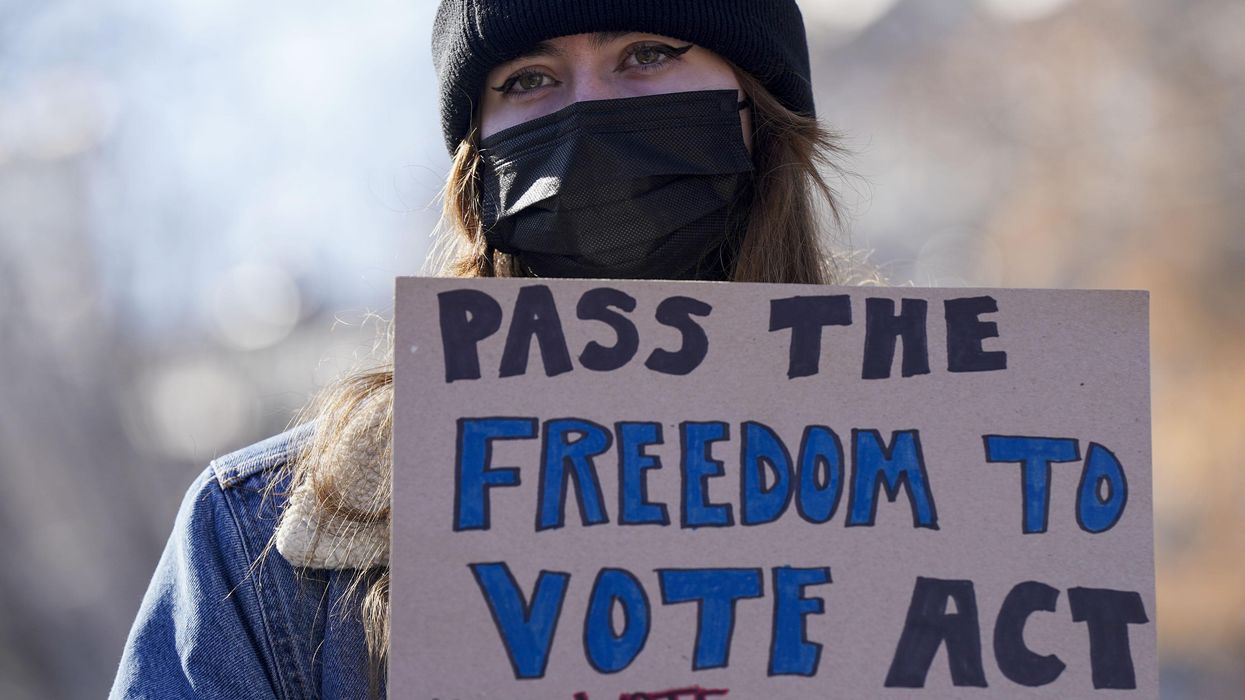Wudel is an advocate for election reform and eliminating political corruption. She volunteers for many democracy groups, including RepresentUs.
I am a constitutional conservative, born in the heartland of the West and raised in the plains of Texas. While the conservative label can mean many things, at its core it means preserving liberty, equality and the constitution. Without free and fair elections, no country can claim it values liberty or equality.
Unfortunately, America’s elections are plagued with corruption and partisanship. But we can fix these flaws with the Freedom to Vote Act. We can strengthen our elections by making certain they do not unfairly favor one party, and striving to put people of all backgrounds on an equal playing field. We also need strong election security so fraud doesn’t taint the results. The Freedom to Vote Act does these things and more, and I urge my fellow conservatives to support it.
One way we can promote equality in elections is by banning gerrymandering, a tactic partisans use to draw congressional lines in a way that virtually guarantees their party wins. Most representatives can safely win their seats without needing to find broad support in the communities they represent.
Because of gerrymandering, only 43 U.S. House races – about 10 percent – were competitive in 2020. Representatives in gerrymandered districts tend to be more extreme because no matter what they do, they likely aren’t risking their electoral prospects. The will of voters in those districts who didn’t support the elected candidates becomes swallowed up in partisan ambition and extreme polarization. As defenders of equality, conservatives should oppose gerrymandering. The Freedom to Vote Act would ban partisan gerrymandering and allow states to choose how to draw fair districts.
Making voting accessible is another way our elections can promote equality. Recent attempts by partisans to decrease the number of voting days, arbitrarily reject valid voter ID methods, and discourage vote by mail are betrayals of the principles and values the Constitution aspires to. The Freedom to Vote Act proposes at least 15 consecutive days of early voting, and Election Day would be an official holiday. These are sensible reforms that ensure all people have enough time and opportunities to vote.
Lastly, many conservatives have been concerned about corruption in our electoral process – in some cases leading them to contest legitimate results and even engage in violence. The Freedom to Vote Act imposes penalties for voter intimidation and giving false election information. Additionally, it gives election officials greater protections against partisan removals, protects against the intentional mishandling of ballots, and prevents the illegal purging of voter rolls. It also requires disclosure of all political spending, including online ads, and cooperation between candidates and super PACs. Conservatives should support this bill to make elections more secure.
It is vital to the health of our democracy that we restore faith in our elections. A threat to one person’s vote is a threat to all. As we strive to live up to our ideals of liberty and equality, we must put down our partisan hats and recognize the need to strengthen our institutions and eliminate the partisan corruption tearing it down. Our constitutional republic depends on it.



















Why does the Trump family always get a pass?